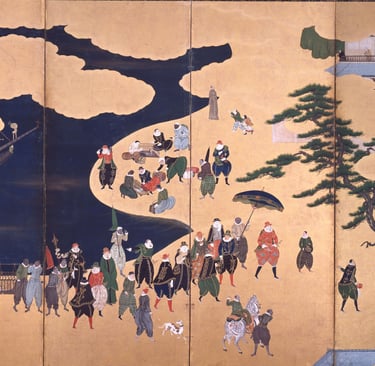INTRECCI: Institutional Transformation and the Entangled Commercial Cultures of International Trade, 1450-1750
Globalisation is a defining feature of the modern world. Over the past five centuries, international trade has driven economic development, restructured societies, and brought about the vast movement of goods, people and ideas. Yet, as recent de-coupling from China and conflict with Russia has shown, the globalised system can be fragile. Whereas the supremacy of unipolar ‘western’ institutional practices defined late twentieth century globalisation, the twenty-first century looks set to see international trade take place in a multipolar institutional context.
Understanding the impact of these changes requires new ways of thinking about global institutional development: ones that recognises enduring, alternative institutional norms that have never fully been subsumed within ‘western’ practice. This raises important questions about how globalisation developed in the first place, as the traditional model of European imperial expansion imposing institutions on the world is unfit for purpose. We must ask instead why global actors adapted, adopted or opposed institutional transformation and how these processes shaped and reshaped what would become the common institutions of global international trade.
To answer these questions, this project will use archives from across the world and an interdisciplinary methodology to deliver a global and intrinsically comparative analysis that will reveal globalisation’s multipolar and adaptive institutional origins. Specifically, it will focus on institutional transformation between 1450 and 1750 in three vital nodes of the premodern world economy – the Gulf of Guinea, the Gulf of Khambhat, and the Straits of Malacca. By developing a systematic approach for analysing institutional transformation across linguistic, imperial and cultural boundaries, this project will integrate local and global analysis of premodern trade to challenge long held beliefs about the origins of capitalism, globalisation and European economic dominance.


INTRECCI is an ERC- and UKRI-funded project hosted at The University of Manchester from 2024 to 2029. Our research sets out to use archives from across the world and an interdisciplinary methodology to deliver a global and intrinsically comparative analysis that will reveal globalisation’s multipolar and adaptive institutional origins. Led by Professor Edmond Smith, the INTRECCI team consists of three Research Associates - Dr Mariana Boscariol, Dr Shounak Ghosh and Dr Safya Morshed, as well as visiting research partners.
